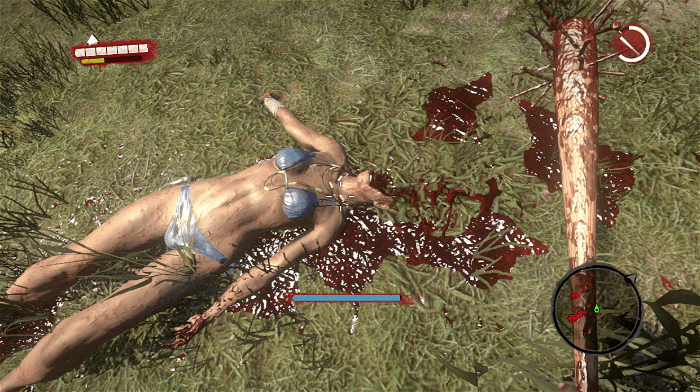Whatever your personal opinions on feminism or sexism in videogames are, the fact that it has become a conversation in the industry is a good thing. There has been a lot of uproar over the feminist frequency video series, the point of view they discuss in regards to videogames, and the media’s subsequent reporting of these stories. If you fall in the camp that was upset with all or any of these, I won’t argue with you, but don’t throw the baby out with the bath water.

It is well established that the human brain is complex. We may never be able to definitively say how or how much our surroundings shape us, but the majority of evidence points to the fact that they do. Videogames can help shape our brains. When it comes to the positive effects, like an improvement in certain cognitive functions, videogame enthusiasts and proponents sing the praises of the console and controller, so if you agree that videogames have an impact on learned skills like these, I think the idea that they can affect thought process or behaviour is worth exploring. Denying any correlation between videogames and possible negative consequences could be detrimental. Whether the issue is the effect of videogames on behavioural tendencies, or the affect they might have on perpetuating stereotypes, it is worth looking into and worth thinking about.
The problem is there is no way to know how an individual will interpret what they are seeing. In the feminist frequency videos that discuss the trope of the damsel in distress, and its variants, Sarkeesian identifies the recurring, iconic image of Mario rescuing Princess Peach as a one that reinforces a singular picture of women as helpless victims that require a male figure to rescue them. Others have discussed the same trope as a positive image that might make men more active when they witness, or suspect, real life abuse of women. And in a Forbes article, Jordan Shapiro applies the point of view that all aspects of the game could be seen as reflections of some part of ourselves. Any or all of these interpretations could be true. The narrative tools used in most games are simple enough that they can be interpreted in many different ways, but just because one of these interpretations could be true for one or many people, doesn’t make it universally so. I don’t know if videogames influence our perception of gender roles, and if they did I couldn’t be certain how, but all of these interpretations hypothesize that the constant reinforcement of the images could be helping to shape behaviour or perception. I think there is enough suspicion that these ideas should be properly researched further.

I think it’s important for anyone making a choice to have the information available to make an informed one. Hopefully the media coverage surrounding these videos will cause more people to think about what they are seeing and playing, and lead to further scientific research. The idea that videogames lead to an increase in violent or aggressive behaviour is something that continues to be studied. This was an issue that gained media attention after individuals tried to connect violent acts with the use of videogames in the late 90’s and early 2000’s. By trying to identify whether or not there was any relation between an increase in media attention regarding that topic, and an increase in research on it, the only discernable factor I could find was by looking through academic documents. I found that the majority of academic papers, books, articles, etc., on the topic of their effect on behaviour, were published from the late 90’s onward. There are studies that fall on both sides of the fence. One meta-analytic review published 2001 and titles “Effects of Violent Video Games on Aggressive Behavior, Aggressive Cognition, Aggressive Affect, Physiological Arousal, and Prosocial Behavior: A Meta-Analytic Review of the Scientific Literature” was in the affirmative camp, where as a study published in 2007 titled “The effect of playing violent video games on adolescents: Should parents be quaking in their boots?” found there wasn’t enough evidence to make that correlation.
Right now, whether you agree or disagree that videogames affect our perception of gender roles or behaviours in regards to them, there isn’t enough evidence to support either side. It’s a fallacy to say because there is sexist material in videogames, that the people who play and create them are, or are becoming, sexist, but just because there isn’t enough evidence to support a claim, doesn’t make the reciprocal automatically true. It’s not a matter of innocent until proven guilty or guilty until proven innocent. All we have right now is a good question that we will hopefully more evidence to answer sooner rather than later.




